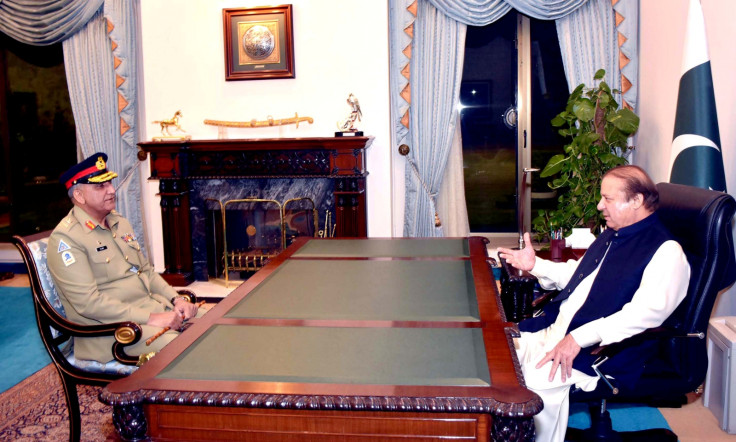India keeping a close watch on change in military leadership in Pakistan
New military leadership being installed in Pakistan as General Qamar Javad Bajwa takes over as army chief.

India is closely monitoring developments in politically volatile Pakistan where a new military leadership is being installed. While General Qamar Javad Bajwa was appointed the new army chief, General Zubair Mahmood Hayat took over as the Chairman Joint Chiefs of Staff Committee (CJCSC) at an official ceremony held in Rawalpindi on Monday (28 November).
Other service chiefs, including military leader General Raheel Sharif, were present as the chairman, traditionally the senior-most officer, took control. The appointments have come at a time as tensions with arch-rival India continue to rise.
New Delhi is keeping a close watch on developments related to Bajwa – who will be holding a crucial position which is seen as more powerful than that of the prime minister in Pakistan – ever since he was named as the new chief on 26 November. Bajwa has had several stints in restive Kashmir in his previous roles with the Pakistani military.
"Just because he is well versed with J&K, we cannot assume that things will go worse or get better. The reading is that he will pursue the same policies. As an Army chief, he cannot be very different," a senior Indian government official told the Economic Times. Pakistan has reportedly kept some of its vital plans on hold for the new army chief to take final decisions. The increasing confrontation with India is bound to be high on the Bajwa's agenda during dialogue with the civilian leadership.
The Pakistani military, which has successfully attempted three coups since the country's independence in 1947, plays an influential role in running the country including control over domestic security matters and intelligence agencies. The army also has more influence in defence and foreign policies of Islamabad.
Meanwhile, former Indian army chief Bikram Singh, who has worked with Bajwa on a UN assignment, has cautioned New Delhi that it should be "careful", but acknowledged that the incoming Pakistani army chief was a professional soldier. "There might be great bonhomie when the goal is world peace under UN mandate but things change once you go back to your country. This is because your national interest comes first. He has served in all these areas [bordering India] and knows pretty well what kind of terrain and conditions exist on both sides," Singh was quoted as saying.
© Copyright IBTimes 2025. All rights reserved.





















